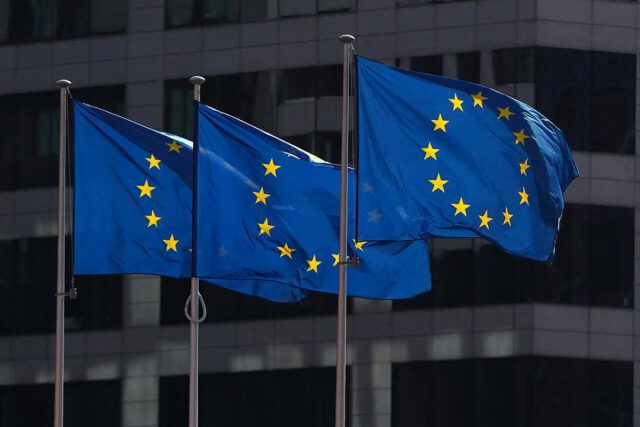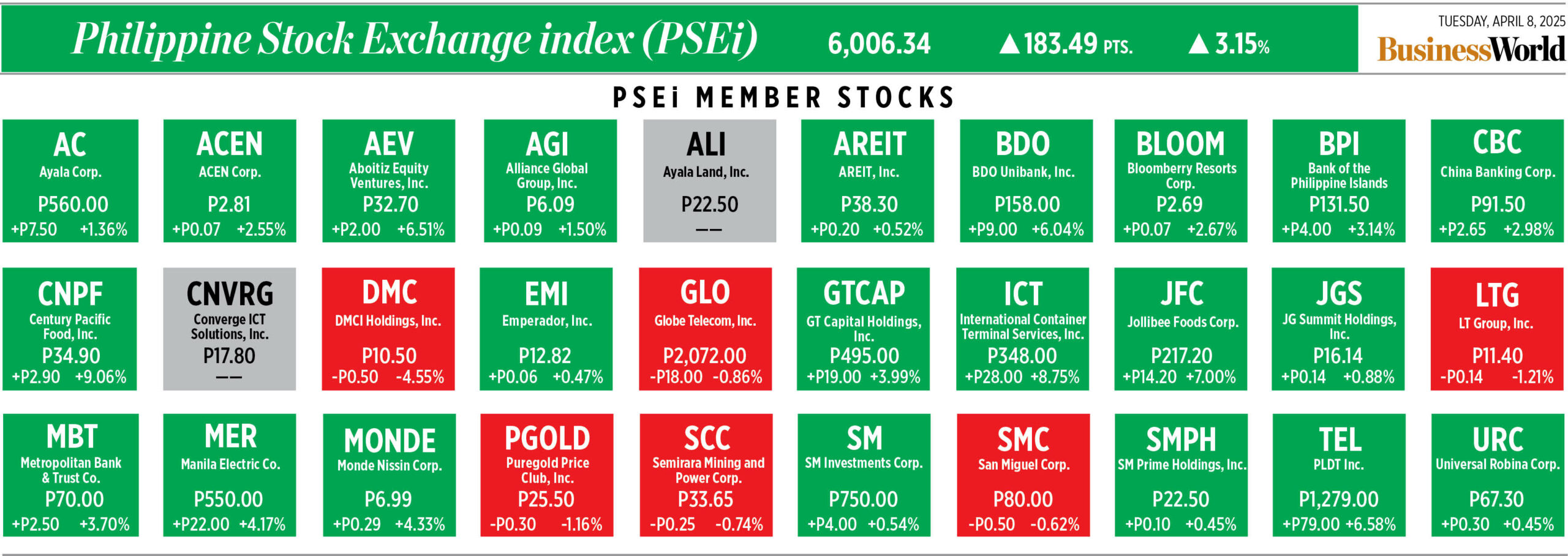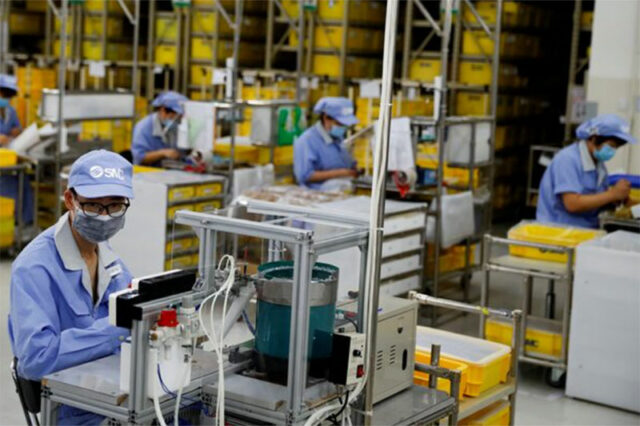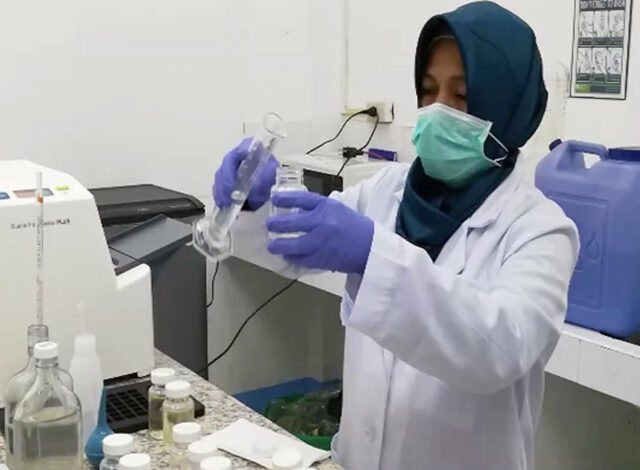European Central Bank rates could fall faster as recession risk mounts
FRANKFURT — A global market rout induced by US President Donald J. Trump’s tariffs scheme has solidified the case for another European Central Bank (ECB) rate cut next week and supports arguments for even quicker policy easing from the world’s second-largest central bank.
The expected economic slowdown induced by the tariffs along with the fallout from the market volatility are likely to be such a drag on prices that they will likely outweigh the inflationary impact of any retaliatory measures by the European Union (EU), economists say.
Markets now see almost two rate cuts in the ECB’s next two meetings and see between three and four steps between now and the end of the year. German bond yields, the euro zone’s benchmark, were once again falling on Monday as markets priced in a recession in the bloc and monetary easing to deal with it.
While ECB policy makers are far from a consensus on what it all means in the longer run, the rout makes next week’s rate cut a near certainty and interest rates could fall far deeper this year than earlier thought without jeopardizing the 2% inflation target.
In fact, the market turmoil is so great, a recession is now a real possibility and propping up growth could soon become a bigger concern than inflation, which has run above the ECB’s target for the past four years.
“They have to cut at every meeting, if only because of the uncertainty,” Frederik Ducrozet at Pictet Wealth Management said. “There is no sign of increasing inflationary pressure over the longer term.”
A raft of influential ECB policy makers, including Pierro Cipollone, Francois Villeroy de Galhau and Yannis Stournaras have all called for more policy easing in the current environment and none of the key hawks have pushed back.
Speaking in private, some policy makers even questioned the ECB’s own projection that tariffs plus the EU’s own retaliation would only lower growth by a half a percentage point in the first year and argued that the impact would be larger.
Indeed, oil prices were sharply lower on Monday, yields were down, gold was down and longer-term inflation pricing was falling, a combination of market moves suggesting that a recession is now expected.
The EU is — for now — prioritizing negotiation over retaliation versus the US.
However, more hawkish ECB policy makers, speaking in private, argue that the central bank may be underestimating the inflationary impact of the tariff measures and its prediction of a short-lived price effect may be off.
They argue that tariffs mean less trade, new value chains and higher costs, all pointing to higher underlying inflation in the longer term, much like in the decades before globalization.
MORE THAN RATE CUTS?
The ECB has long said that rate cuts are its primary policy tool but the bank also has a wide range of ready-to-use unconventional instruments in case the market rout morphs into a full meltdown.
The ECB will get nervous if bank lending is impaired, the yield differential between euro zone member states rises to levels that are deemed unjustified and disorderly or if there is a surge in investment grade yields.
The big difference compared with previous crises is that Mr. Trump controls the narrative and could end the turmoil with a stroke of a pen or could even make it far worse.
“We’re in a severe correction territory now, not a meltdown, but there is also a potential for this to turn into a full scale meltdown,” ING economist Carsten Brzeski said.
“Should that be the case, we’re back to the ordinary crisis tools like: liquidity injection via bond buying, TLTROs or LTROs, and perhaps a beefed up dollar swap line.”
TLTROs, or targeted longer term refinancing operations, were used in the last decade to provide banks with cheap, multi-year funding, with incentives to use the cash to keep bank lending to the real economy going.
The ECB also has a standing facility with the US Federal Reserve to access dollars in case banks struggle to find the funding on the market. During the pandemic, the weekly operation ran daily.
There is no sign any of this is happening for now. Commercial banks sit on €2.8 trillion ($3.07 trillion) worth of excess liquidity and there was no demand on Monday in the ECB’s daily liquidity tender.
Rate cuts are the focus for the moment, with the market pricing in a 25 basis point reduction next week and then again in June, and one or two more by the end of the year.
Looking further out, Germany’s 10-year bond yield was down 3 basis points to 2.59% by 1240 GMT on Monday as the market priced in a recession. — Reuters















